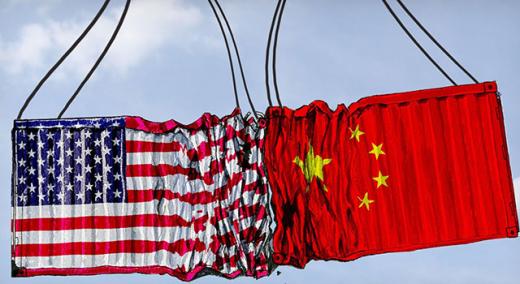After more than a year of being pummeled by pandemic-related supply chain shortages, computer maker HP had some good news to report during its third-quarter earnings call last month. Revenue is up 7 percent over the prior-year period, even though it fell short of projections.
|
ADVERTISEMENT |
The problem isn’t demand. Chief executive Enrique Lores told Barron’s, “We are selling everything we can produce.” Yet supply chain problems persist, especially across Southeast Asia where many factories have been forced into Covid-19 lockdowns.
“We could have grown more if it wasn’t for the shortage of components,” Lores said.
Although well past the initial shock wave of the pandemic, industries across the spectrum are still grappling with ripple effects that threaten to sink profitability. Gad Allon, Wharton professor of operations, information, and decisions, said now is the time for business leaders to rethink their reliance on China as the main supplier for everything from computer chips to shoes.
…

Comments
I am not sure why we rely on the PRC at all
I am not sure why we ever offshored these capabilities at all. Does importing things such as computer chips from places like the People's Republic of China give them some kind of "imported" exotic value they would not have if they were made in the United States? I am sure some managers wanted the cheaper labor but semiconductor manufacture is capital-intensive rather than labor-intensive.
In addition, the PRC is well known for counterfeit and substandard semiconductor components, active pharmaceutical ingredients, toxic pet foods with melamine, and other low-quality work. This is not to say that companies in other countries including the US have not sometimes done these things as well (e.g. Ford Pinto, defective ignition switches from General Motors, Takata air bags) but the recipients of the poor quality have recourse against the manufacturers in question as they are within the reach of US and Japanese courts respectively. A back-alley PRC chip "maker" (they repaint computer chips and add serial numbers to make them look like the real thing) can sell them and then be nowhere to be found when a product becomes unusable as a result or, even worse, causes deaths and injuries. I also recall that Canada discovered hundreds of thousands or even more PRC-made KN-95 respirators that did not meet standards and could have put countless users at risk for Covid-19.
Even worse, the PRC threatened openly to cut off supplies of rare earths and, more recently, medications for use against Covid-19. That is, the PRC threatened explicitly to cause the deaths of American and other countries' citizens for going against Beijing. This should not be tolerated for an instant and the US should do the things it and its enemies did in the Second World War (e.g. inventing synthetic rubber to replace the natural rubber that fell under Axis control, while Germany found ways to turn coal into motor vehicle fuels when the Allies cut off its oil supplies) to end completely its dependence on a hostile government that has threatened its neighbors such as Taiwan with war and curtailed the freedom of Hong Kong.
In addition, even reputable suppliers in places like Japan are subject to force majeure from earthquakes, typhoons, and so on that can imperil long and complex supply chains. We have instead learned the hard way that absence of even one item from a complex bill of materials can idle a manufacturer completely, to the extent that our major automakers cannot make cars and have had to cut work hours.
Add new comment